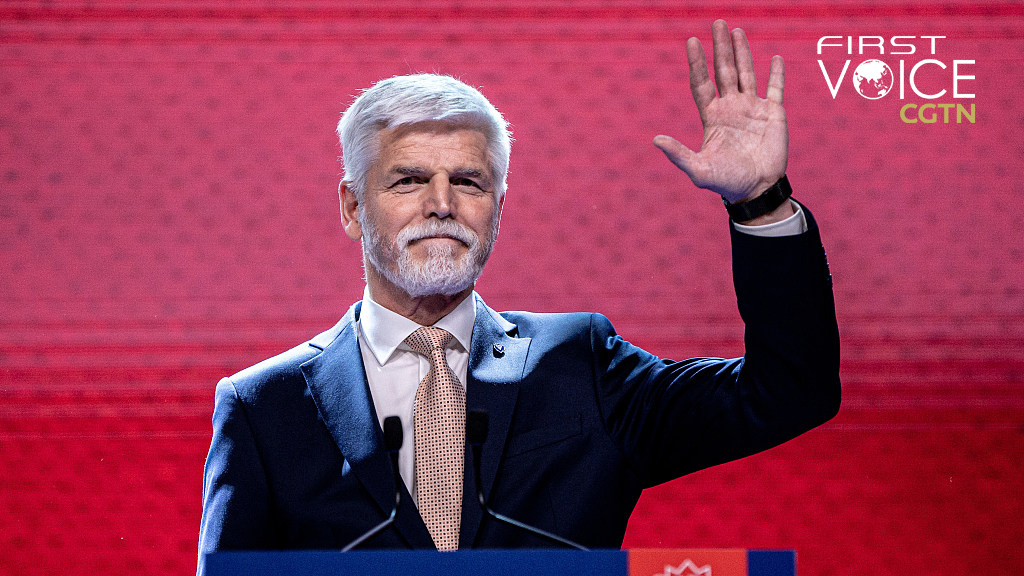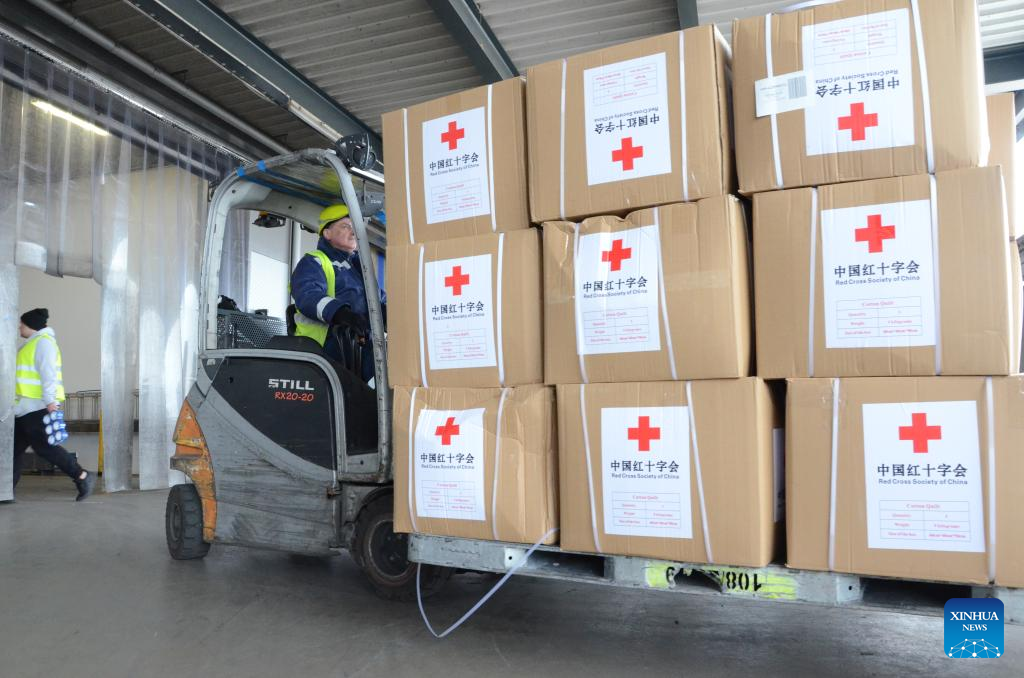
Editor's note: CGTN's First Voice provides instant commentary on breaking stories. The column clarifies emerging issues and better defines the news agenda, offering a Chinese perspective on the latest global events. This First Voice article is written by CGTN Special Commentator Bradley Blankenship, a Prague-based American journalist, political analyst and freelance reporter. The article reflects the author's opinions and not necessarily the views of CGTN.
Czech President and former NATO military committee chair Petr Pavel said in an interview with Politico published on Tuesday that he doesn't think Beijing is sincere in its efforts to reach a peace deal in Ukraine. He said that "it is in China's interest to prolong the status quo because it can push Russia to a number of concessions," which include cheap resources from Moscow in exchange for its "no limits" partnership.
He also said he believes that China is benefiting from the West's diminishing strength by supporting Ukraine and, moreover, that Beijing is taking notes from the Ukraine conflict. This interview is also concurrent with an ongoing inter-parliamentary conference in Prague, which is bringing together members of parliaments from national parliaments, the European Parliament, observer and candidate countries as well as officials for a joint discussion, including that of Ukraine, Ruslan Stefanchuk.
Despite what the president says, I regret to inform him that his opinion is completely false. And I would, in his own parlance, argue that it constitutes out-and-out misinformation because it is so grossly out-of-line with reality.
At the same time, I understand that he has only been in office for less than two months and is not a lifelong politician and, therefore, a few missteps could be expected as he comes into his own as Czech president. So I will go ahead and politely correct the record.
First, China is not taking sides in the conflict. And, in fact, most countries on the planet are also not taking sides in the conflict. If you look at a map of the countries that are funneling weapons into the conflict, thus ensuring that it prolongs, you will essentially have a map of the United States and its military allies. That's it.
In this same sense, one could argue that the majority of the world is benefiting from the conflict in Ukraine – but that is clearly absurd since the war, and the ominous threat of global thermonuclear war in particular, is bad for everyone.

Humanitarian aid supplies sent by the Red Cross Society of China to the Ukrainian Red Cross Society are transported in Warsaw, Poland, March 15, 2022. /Xinhua
Humanitarian aid supplies sent by the Red Cross Society of China to the Ukrainian Red Cross Society are transported in Warsaw, Poland, March 15, 2022. /Xinhua
Now, of course, China and Russia have a very important relationship. Both countries are important trading partners and also have a strategic partnership aimed at defending the foundations of international law against unilateralism. But this should not be mistaken for the two being indistinguishable geopolitical actors; they both have their own objectives suited to their own geostrategic needs.
That's why it's important to recognize that, secondly, it could actually be argued that China – or, rather, Chinese companies – are suffering mightily from the conflict. That's because China has been Ukraine's largest trading partner since 2019, providing 14.4 percent of its imports and serving as a destination for 15.3 percent of its exports in 2020. Ukraine is also not just a major trade partner for Beijing but actually an important strategic one.
That's because, to quote Ukrainian President Volodymyr Zelenskyy in his first phone conversation with Chinese President Xi Jinping in 2021, the Eastern European country is "a bridge to Europe for Chinese business," since the two have a free-trade deal and China and the EU do not yet. Ukraine is essentially a staging point between China and the EU, which is crucial because China has been the bloc's largest trading partner since 2020.
Moreover, Ukraine is a member of the Belt and Road Initiative (BRI) and Chinese companies have a ton of major infrastructure investments in the country. For instance, China's leading agricultural and food company, COFCO Corporation, built a $75 million grain and oil transfer terminal at Mykolaiv port on the Black Sea in 2016 – one year before it joined the BRI. The next year, Chinese engineers finished their upgrade of the Yuzhny port near Odesa, Ukraine's busiest international port.
I could go on and on about the tangible assets that Chinese companies have staked in Ukraine. But, to put it succinctly, before the outbreak of the conflict, the two signed some $3 billion in infrastructure-related contracts since 2017. This spans everything from metro lines, ports (as I mentioned), solar power arrays and much more.
In addition, Ukraine is a major agricultural supplier to China. Since beginning sales in 2013, by 2019 Ukraine became China's single largest supplier of corn – accounting for over 80 percent of China's imports. China also became the top importer of Ukrainian barley in the period 2020-2021. In 2013, China's Xinjiang Production and Construction Corps signed a 50-year agreement with Ukraine's KSG Agro to lease 100,000 hectares of farmland for cultivation and pig farming.
So, does President Pavel really believe that China wants to see its own investments destroyed during the conflict? Of course not. But I am willing to bet that neither he nor his underlings actually knew any of these facts before he did this interview with Politico, which is why I would caution him to familiarize himself with the facts before making such comments.
(If you want to contribute and have specific expertise, please contact us at opinions@cgtn.com. Follow @thouse_opinions on Twitter to discover the latest commentaries in the CGTN Opinion Section.)